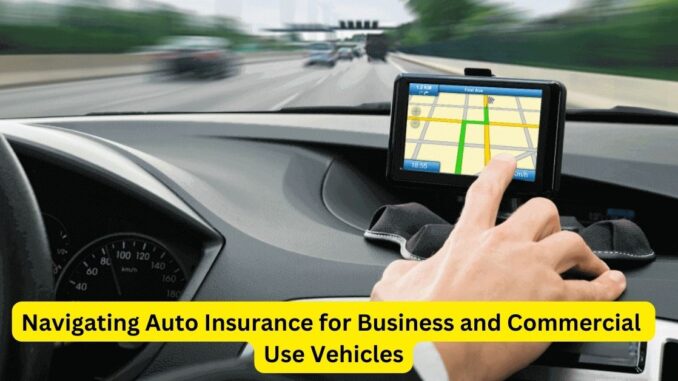
For businesses relying on vehicles for operations, ensuring adequate insurance coverage is crucial. Whether you operate a fleet of delivery trucks, company cars, or specialized vehicles, understanding the nuances of auto insurance for business and commercial use is essential for protecting your assets and managing risk.
1. Differentiating Between Personal and Commercial Use: One of the key distinctions in auto insurance for businesses is understanding when a vehicle is used for personal or commercial purposes. Personal auto insurance typically doesn’t cover vehicles used primarily for business activities. Businesses must secure commercial auto insurance to ensure coverage aligns with the unique risks associated with commercial use.
2. Comprehensive Coverage for Business Assets: Commercial auto insurance provides comprehensive coverage for business-owned vehicles, protecting them against a range of risks such as accidents, theft, vandalism, and natural disasters. This coverage extends beyond what is typically offered by personal auto insurance policies, providing necessary protection for valuable business assets.
3. Liability Protection for Business Operations: Business auto insurance includes liability coverage, protecting the company in the event of accidents where the business is deemed at fault. This coverage can encompass bodily injury, property damage, and legal defense costs, shielding the business from potentially crippling financial consequences.
4. Insuring Specialized Vehicles: Businesses often use specialized vehicles for specific operations, such as delivery trucks, vans, or service vehicles. Commercial auto insurance allows for customization of coverage to meet the unique needs of these specialized vehicles, ensuring that all aspects of the business’s operations are adequately protected.
5. Employee Coverage: When employees drive company vehicles, commercial auto insurance covers them as well. This includes protection for both the employee and the business in case of accidents or injuries that occur during work-related driving activities. It’s crucial to communicate the importance of safe driving practices to employees to mitigate risks.
6. Hired and Non-Owned Auto Coverage: Businesses may need coverage beyond owned vehicles. Hired and non-owned auto coverage is designed to protect a business when employees use personal vehicles for company business or when renting vehicles for specific tasks. This coverage is an important addition to comprehensive commercial auto insurance.
7. Compliance with Regulations: Many jurisdictions have specific insurance requirements for businesses that use vehicles. Adhering to these regulations is not only essential for legal compliance but also ensures that the business is adequately protected in case of unforeseen incidents on the road.
8. Risk Management and Loss Prevention: Working with an experienced insurance provider can offer valuable insights into risk management and loss prevention strategies. From driver safety programs to vehicle maintenance guidelines, implementing these practices can help mitigate risks and potentially lead to lower insurance premiums.
In conclusion, businesses relying on vehicles for their operations must prioritize obtaining the right auto insurance coverage. Commercial auto insurance goes beyond personal coverage, offering protection for business assets, liability coverage, and specialized vehicle protection. Understanding the intricacies of business auto insurance is crucial for safeguarding both the company and its employees on the road.
Leave a Reply